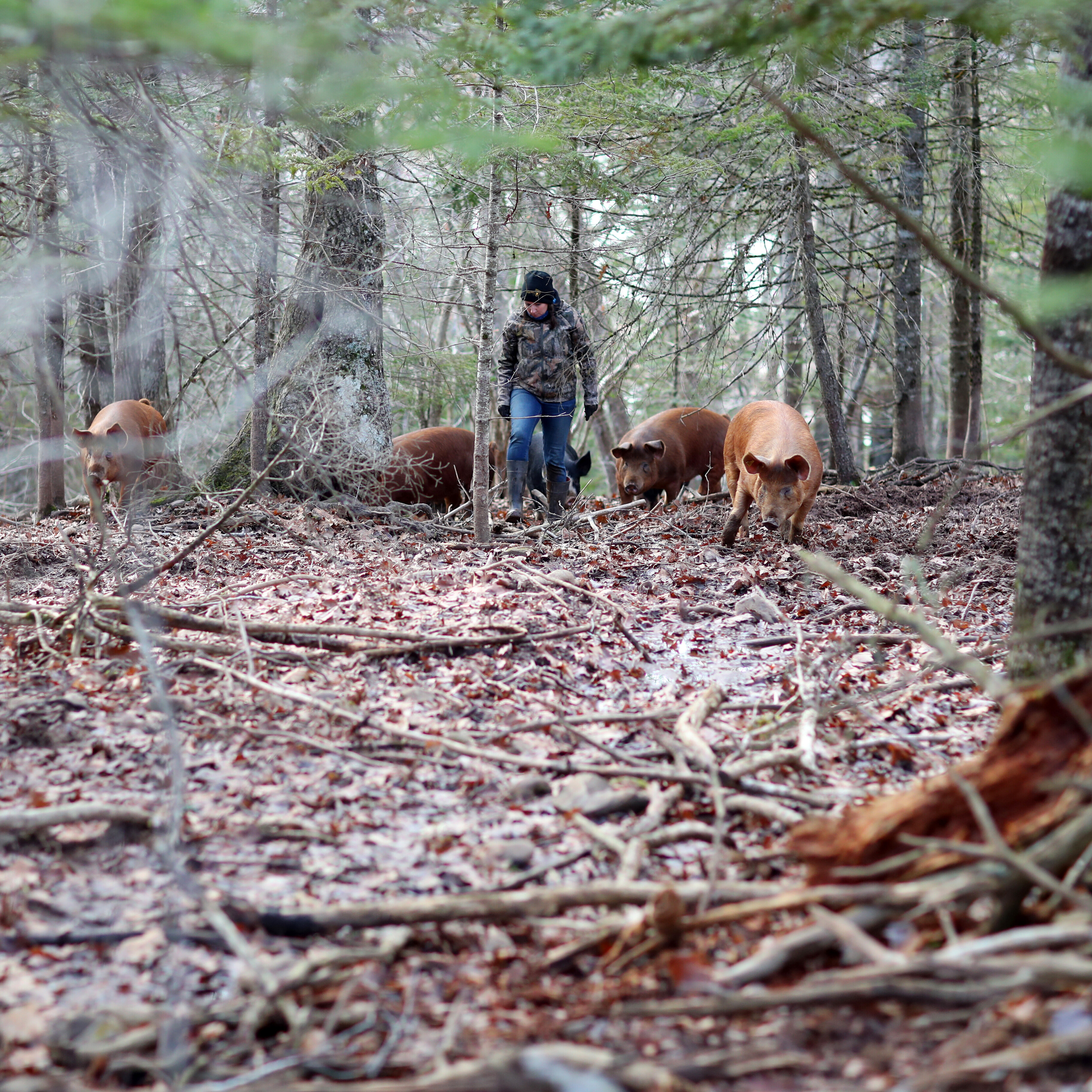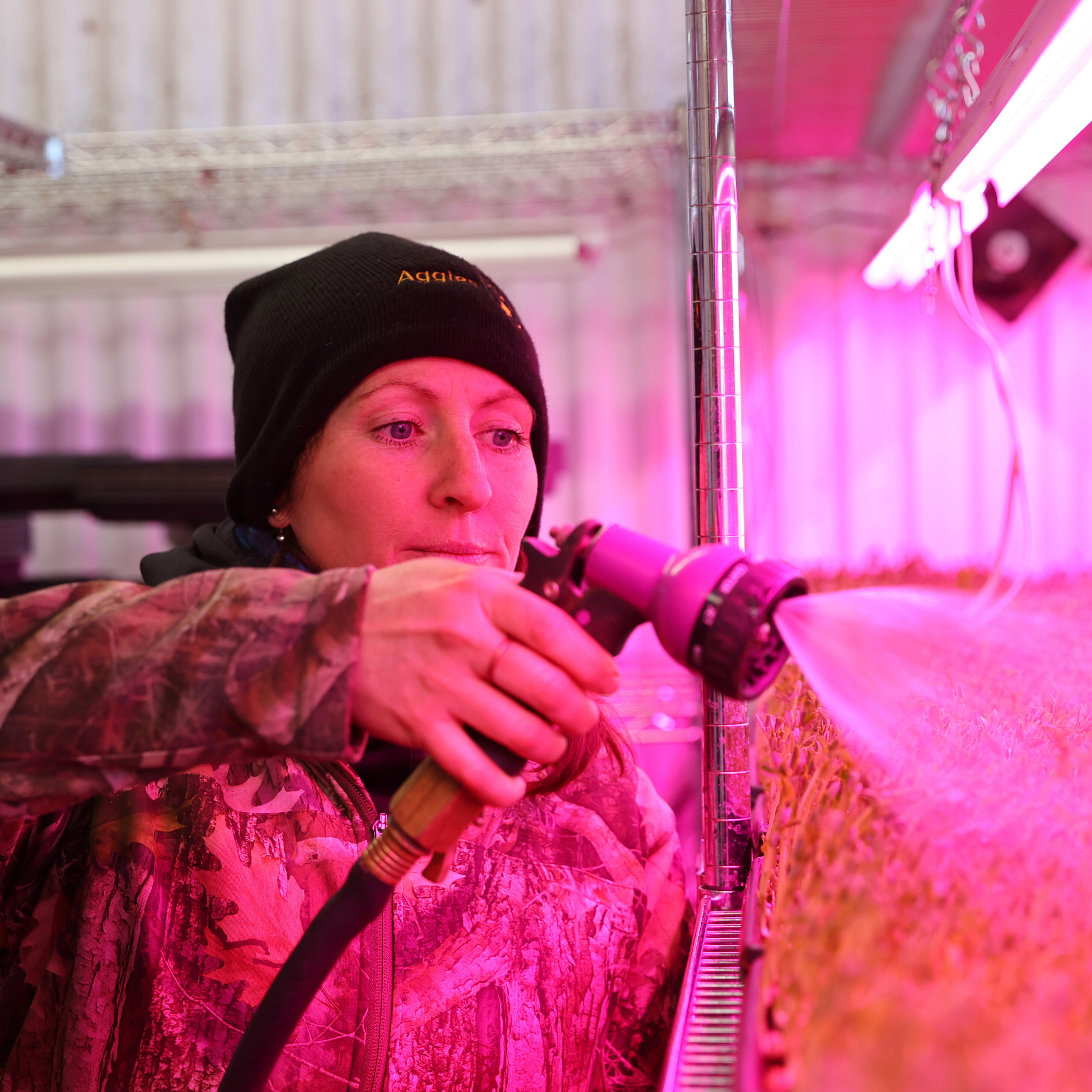Snowy River Farm is a small family farm in Cooks Brook, N.S. We talked to Amy Hill about celebrating small successes, and the importance of choosing resilience over convenience.
Tell us about your farm:
I operate a diverse, ecological farm with a focus on pasture-raised broilers (1600-2000 annually), hogs, and a market garden with greenhouses. I practice interspecies grazing, rotating our chickens, hogs, and cattle weekly to improve soil health and increase pasture diversity. The farm has always been guided by organic principles, emphasizing soil building, companion planting, and reduced synthetic inputs.
I started the farm in 2011 and grew large enough for my husband to join me in 2017 until Covid shutdowns sent him back off farm. I’m the primary farmer, with two part-time employees during the growing season. Originally from the city, I went to the Agricultural College for a Degree in Animal Sciences and gained passion for the sustainable agriculture I learned about including practices like soil building, companion planting, diversification of commodities, and reducing synthetic inputs to support a healthy agroecosystems. My experience farming has cemented the importance of prioritizing our livestocks’ physical and mental health as well as heirloom produce varieties, choosing resilience over convenience as external pressures, like climate change and rising costs, increase.
Why do you farm organically?
While we aren’t certified organic, we farm with organic standards for our market garden. We use a non-GMO feed for our livestock, not organic, due to a lack of access to bulk organic feed. Organic farming aligns with our values of sustainability, resilience, and holistic land management. By using livestock to cycle nutrients (e.g., pigs clearing land for gardens and then also consuming garden weeds and leftovers), we reduce waste and external inputs. We also want to leave the land better than we found it and avoid reliance on costly, inaccessible synthetic supplies.
What’s been your biggest challenge?
Almost everything surrounding the production of organic meat in Nova Scotia is either incredibly difficult or impossible at this time. The inability to access bulk organic feed and organic livestock has been our biggest challenge to becoming fully organic. Organic chicks and hogs are difficult, if not impossible to find and feed access is difficult because we need to have it delivered in bulk to our feed tanks but the feed companies will not trailer it to us as they also deliver conventional feed and cannot, or will not, perform the necessary washing in between to keep certification on the feed. We do not have the ability to store totes or feed bags at the amount we require (I also believe that many bags would be incredibly wasteful) so we do require it to come in bulk. We would use organic feed, even with the extra costs, if it came directly to our feed tanks. We’ve also struggled accessing a livestock abattoir that can process Organic-certified poultry as there aren’t any abattoirs processing to organic standards here currently that I know of.
Despite these challenges, we remain committed to organic principles where possible, such as using non-GMO feed, remaining antibiotic and hormone free, keeping low stocking densities and focusing on our pasture-based systems. I use heirloom and organic seed and soil amendments for our market garden and greenhouses as well as organic based pest and disease management.
What gets you out of bed in the morning?
Even in tough years, small successes—like the first tomatoes of the season or sharing homegrown food with our children—are deeply rewarding. Farming has transformed my relationship with food from a former enemy into something nourishing and joyful. Though we’ve learned many lessons the hard way, the fulfillment of building a resilient farm keeps us going.




